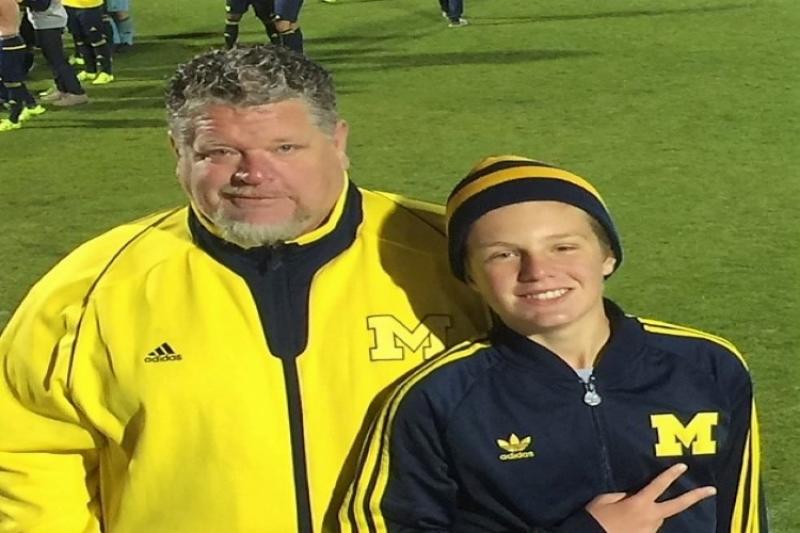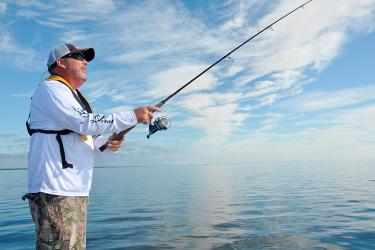Where did you grow up?
I grew up all over the world, similar to an “Army brat,” but I was a “college brat.” We moved from city to city based on the university where my parents were employed. I was born in Lexington, Kentucky where my parents worked at University of Kentucky. Then we moved to Barbados where my dad did his dissertation research. We also lived in Racine, Wisconsin (University of Wisconsin–Parkside), and Ann Arbor, Michigan (University of Michigan). After I graduated high school, I moved to Ohio to attend college. My mom recently retired after being a dean for 25 years and my dad is still working as a member of the Anthropology Department and Bureau of Applied Research in Anthropology at the University of Arizona.
Where did you go to school and in what subject did you get your degree(s)?
After high school at Ann Arbor Pioneer, I earned a Bachelor of Arts in Anthropology, Sociology and Spanish from Ohio Wesleyan University. I earned my Master of Arts in Sociology from East Carolina University where I had the wonderful opportunity to work for Dr. Mike Orbach, Dr. David Griffith, and a host of other highly regarded fisheries scientists. After I received my master’s degree I worked for 2 years in Washington, D.C. for the Applied Ethnography Program of the National Park Service. A short 6 years later I earned my doctoral degree in Applied Anthropology from the University of South Florida. Just like my dad, my dissertation research was completed based on research conducted in Barbados.
How did you come to work at the Southeast Fisheries Science Center?
I applied to the center in 2003 at the suggestion of Dr. Mike Orbach and Dr. Bonnie McCay, who was my boss and mentor at Rutgers University. At that time, I was in my second year of postdoctoral work at Rutgers University and had experienced two of the coldest and snowiest seasons that New Jersey had seen in the past 100 years. While difficult to leave the research in the Mid-Atlantic, it was a blessing to bring my experience to a region that included the U.S. Caribbean to work as an applied anthropologist. In May 2023 I will have been with NOAA for 20 years and I am the first anthropologist to ever be a full-time employee for the Southeast Fisheries Science Center.
What do you do at the science center?
I do many things in my capacity as an applied anthropologist. The most important is to act as a conduit for information to be passed from local stakeholder groups associated with commercial, recreational, and subsistence fishing sectors to those who sit at the decision-making “table.” I help ensure that local perspectives are considered in the development and acceptance of alternative fishery management policies, while addressing socio-economic impacts. This also works in the other direction as I work to make sure our local stakeholders understand NOAA's mission to protect and appropriately utilize our Nation's most precious resources.
I also work to improve our service to underserved communities throughout our region. I take great pride in this as I think my training and experience prepared me well to examine these important issues from a perspective that highlights how communities and groups are impacted by natural and social perturbations. My background makes me capable of sharing and synthesizing various types of information with people from various ethnic, class, gender, and cultural backgrounds.
While working on policy is extremely important to our mission of creating sustainable fisheries at NOAA, I am also very proud of the work we do dealing with disasters. The research we have conducted on how hurricanes and pandemics, like COVID-19, can affect fisheries and fishing communities. It highlights the adaptive strategies and resiliency of fishermen and fisherwomen and their communities, especially in times of crisis.
I am very proud of the 15 students that I worked with over the years as they earned their Master of Arts degrees. Two of those went on to receive their doctorate in Anthropology. When I work with students I try to demonstrate that even if their background is in marine biology, there is great utility in looking at things from a multi-disciplinary approach (especially incorporating the social sciences). As I say, “We don’t manage natural resources, we manage natural resource users.” Regardless of the situation we must know how to deal with each other as we move forward towards achieving the goal of creating sustainable fisheries.
What do you like most about your position?
I love being able to work with people inside and outside of the office. I have found that over the last 20 years I have made some incredible friendships with folks within the Southeast Fisheries Science Center.
What advice would you have for someone interested in a career at NOAA Fisheries?
It is a great place to work. Come with an open mind and be willing to work in teams of people from all backgrounds. Never close yourself off from getting a chance to know someone and learn from them.
Is there a book, quote, or person that influenced you to be the person that you are today? Tell us why.
My dad is a well-known anthropologist and he brought me along on a research trip to the Dominican Republic. The trip was fisheries-related and he needed me to help him communicate in Spanish. While there, I went spearfishing in Buen Hombre. When I returned my dad was waiting on shore for me. At the time, I was a sophomore in college, but was not that dialed into the education system. However, when I returned from that day at sea, I had learned why fishing was so important in a community that had no electricity, no doctors, no schools, and no potable water. I recognized that I was doing the work of a fisheries anthropologist. After I realized this, I hugged my Dad and I asked him, “Is this what you do?” He smiled and responded, “If you are good enough.” He meant that with dedication and drive, one day I could be running my own projects that worked to positively impact the people I served. So, the phrase, “If you are good enough,” influenced my life the most.
What do you like to do outside of work?
I live through my kids. I brought them up as soccer players and all have been blessed with great ability. When I follow them around the country to camps and tournaments, I am amazed at how special they are to me and the way they play the game. I also love drinking good rum and playing dominoes with my fishermen friends throughout the Caribbean.





